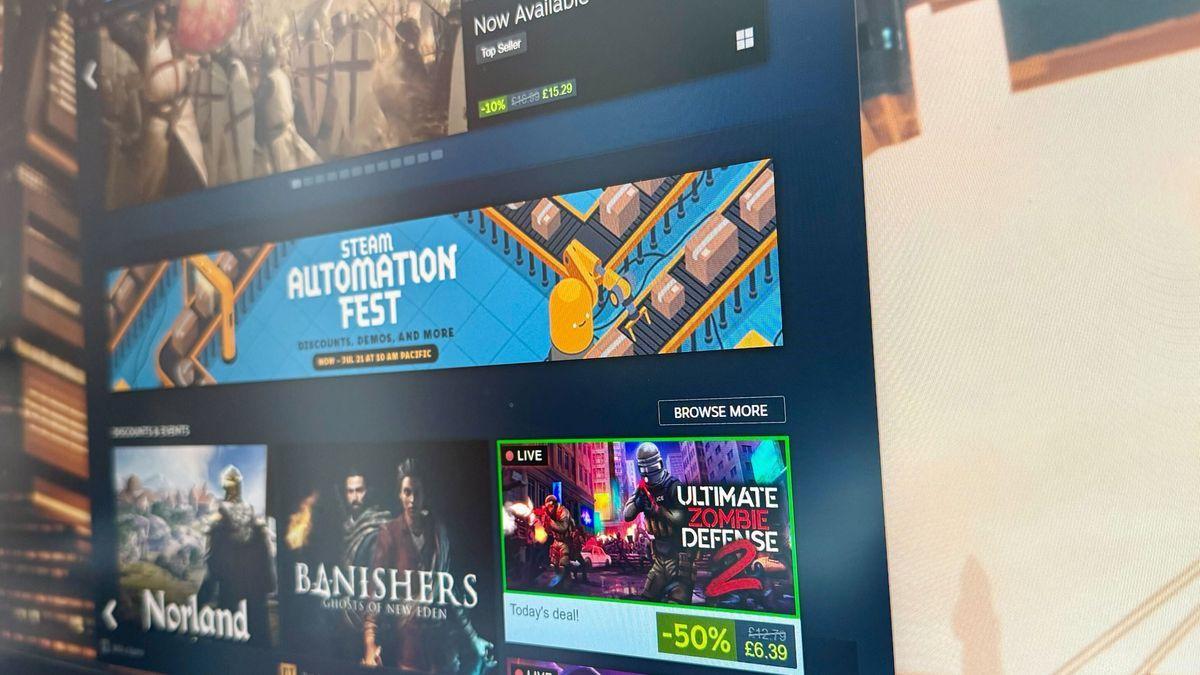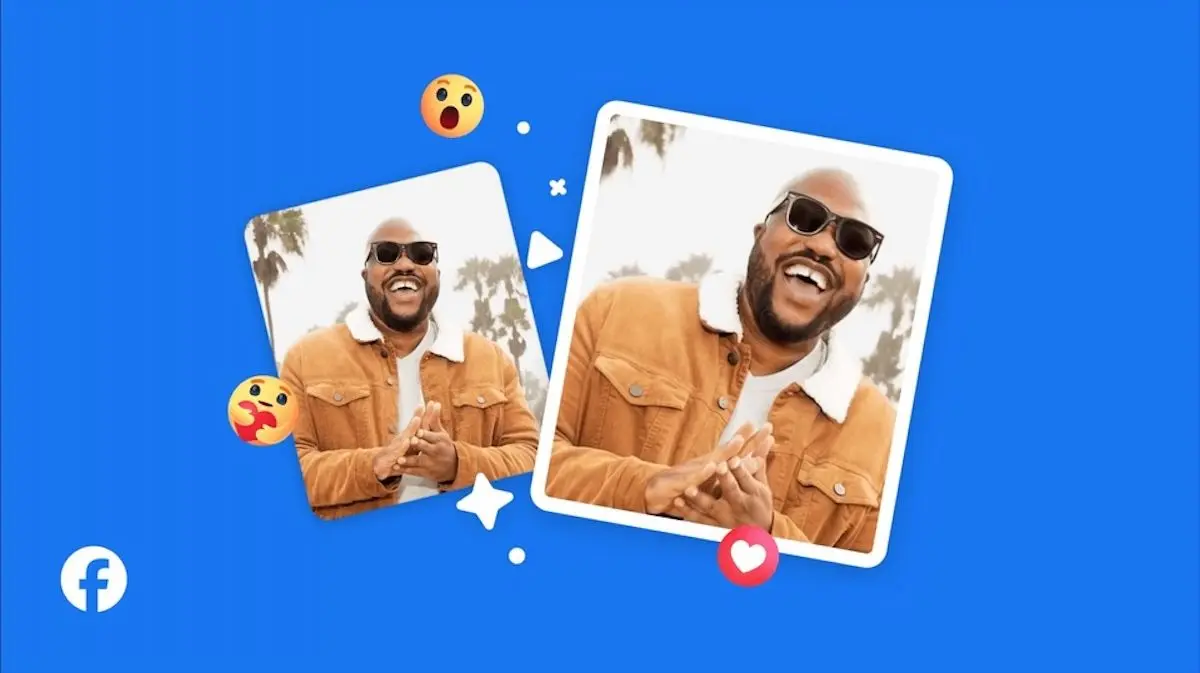Itch.io Implements Mandatory AI Disclosure Policy for Asset Creators
5 Sources
5 Sources
[1]
Itch.io marketplace now requires asset creators to disclose their use of generative AI
AI-generated graphics, text, code and sounds will be tagged accordingly. Creators who sell assets on itch.io will now have to be a lot more upfront about using generative AI. The marketplace for independent digital creators has introduced a new rule that requires users to label their projects if they were produced using generative AI tools, such as ChatGPT and Midjourney. Users will see an AI generation disclosure box when they upload their projects. If they confirm that their project contains AI-generated output, they'll be required to indicate what kinds of content were made with generative AI, whether they're graphics, sounds, text and dialogue or code. If they have a public asset page, they'll see a dialog box when they access their dashboard, making it easy to bulk tag their projects. They'll be able to select multiple projects from their list and then indicate whether they contain AI-generated content or not. All assets with AI output will get the "AI Generated" tag, while those without will be tagged as "No AI." Each content type will have its own sub-tag, as well. itch.io requires all assets that used AI in any way, even if the creator had hand-edited it, to be tagged as AI Generated. And if it finds any untagged work that used artificial intelligence tool, it will make that asset ineligible for indexing so that potential buyers could no longer find it. However, it's unclear what measures the marketplace is taking to police its website. While itch.io's new policy may not be enough for those who'd rather ban AI content altogether, the tags will allow buyers who don't want AI assets in their work to filter them out.
[2]
Indie game platform Itch.io now requires developers to tag AI content
"To ensure buyers are aware of the origins of the material they are obtaining." Indie game platform Itch.io now requires developers to disclose whether generative AI has been used in their work. Posting on Bluesky, the platform detailed its new tagging requirement, specifying it is a required field for asset creator pages "to ensure buyers are aware of the origins of the material they are obtaining". Itchi.io is focused on asset creators "since their disclosure can impact a larger number of creators that may use their assets". Furthermore, any assets comprising generative AI that are not tagged will not be indexed on the platform's browsing pages. Without tags it can be difficult to ascertain whether AI has been used, which is why the platform is allowing creators to update their own tags. "We'll have a grace period for people to update their pages, then we'll likely use user reports to handle pages that have not been addressed," the website reads. We are now requiring asset page creators to tag their use of generative AI in their work. You can learn more here: itch.io/t/4309690/ge... On your dashboard you can find a bulk tagging dialog if you have pages that need tagging. [image or embed] -- itch.io ( @itch.io) 20 November 2024 at 15:55 Earlier this year, Valve updated its Steam policy requiring developers to disclose if generative AI has been used. Further, a system was implemented to allow users to report "illegal content inside games that contain Live-Generated AI content". It's all part of an attempt to regulate AI content in games. While AI has been openly adopted by some developers, others are more reticent. AI is "the very core of our business", said EA CEO Andrew Wilson for instance, while Zenless Zone Zero producer Zhenyu Li revealed AI generated content is used to "better smoothen the game progress". Embracer will have a "human-centric approach" to using the technology, while Nvidia boss Jensen Huang said "we can't do graphics anymore without AI". Nintendo's Shigeru Miyamoto, meanwhile, said the company would "rather go in a different direction" than follow AI trends, while Paradox deputy CEO Mattias Lilja said AI is "not a big part of the games... it's going to be a lot of human hands on whatever ends up in the games".
[3]
Indie distribution platform Itch.io now requires asset creators to disclose the use of generative AI in their work
Asset page creators are now required to tag their work, and will not be indexed for searches if they don't. Indie-focused digital storefront Itch.io has announced a new policy requiring asset creators on the platform to disclose whether their work makes use of generative AI, and to specify what sort of content is AI-generated when it's present. "We are now requiring asset page creators to tag their use of generative AI in their work," Itch.io wrote on Bluesky. "This tagging tool is available for all pages, but it is a required field for asset creator pages to ensure that buyers are aware of the origins of the material they are obtaining." Itch.io said it's currently focusing on asset creators, "since their disclosure can impact a larger number of creators that may use their assets." Assets made using generative AI that aren't properly tagged as such "will no longer be eligible for indexing in our browse pages," the platform warned. The obvious question is how assets made using generative AI will be found if they're not properly reported by their creators, and at this point it sounds like Itch.io is still getting the details sorted. "For now we're letting creators tag their work at their own pace to ensure that we have the classifications in place to provide better filtering," Itch.io wrote on Bluesky. The Itch.io website says that after a grace period to allow creators to update their tags, "we'll likely use user reports to handle pages that have not been addressed." The use of AI-generated game assets is a growing concern for the game industry. Some companies have forsworn the use of generative AI in their games, but actually keeping it out is proving something of a headache: Just a month after committing to not using generative AI to create Magic: The Gathering products, Wizards of the Coast acknowledged (after initially denying) that a January 2024 promo image was in fact created with generative AI. More recently, Blizzard ran into a similar problem with datamined pixel art images in Hearthstone after players raised concerns about the possible use of AI: The company hasn't yet confirmed the results of its investigation, but the artwork in question was subsequently removed. Several people responding to the announcement have asked why Itch.io doesn't simply ban the use of generative AI outright: One described the use of AI for asset creation as "a shitty grift that actively harms the indies that your platform specifically caters towards." Itch.io hasn't yet addressed that inquiry directly, but one possibility is simply that generative AI is already in widespread use: 31% of respondent to a GDC study published earlier this year said they're personally using generative AI in their work, and 18% said they're not using it themselves but have colleagues who are -- though not necessarily to create anything players actually see. Given those numbers, and the fact that they're inevitably going to grow, a straight up ban on generative AI may not be workable. Itch.io's new policy follows a similar move by Valve, which announced an AI disclosure policy for games on Steam in January.
[4]
Itch.io's 'No AI' tag is a positive step in the battle against AI slop
The inundation of AI-generated slop on various media platforms increasingly risks making them unusable. It's an issue effecting everything from Spotify to indie games platforms like Itch.io, making it harder for users to find quality content (see some tips on how to identify AI 3D models) Itch.io is now trying to save things with a new AI filter. It will require those who submit assets to declare whether generative AI was used to make them. The move has generally been welcomed by indie developers. But there are still some questions. Itch.io says its AI Generation Disclosure requires asset page creators to tag their use of generative AI to make it easier to filter out from search results. A new field on project edit pages asks if the project contains the results of generative AI. If you select 'yes', you'll be asked what kinds of generative AI were used - graphics, sound, text and dialogue or code. This will apply sub-tags based on the selections. There's also a bulk tagging dialog for whole pages that need tagging. Assets that were made using generative AI and aren't tagged accordingly will no longer be eligible for indexing on browse pages. The site's creator Leaf Corcoran said there would be a grace period for people to update their pages, after which the site plans to use "user reports to handle pages that have not been addressed. "This field is now required for all asset creators on itch.io. If you have a public asset page on itch.io and you view your dashboard, you will now see a blocking dialog instructing you to classify your pages," leafo wrote. The statement only mentions assets rather than games, but the 'No AI' tag appears in itch.io's games library, suggesting that the filter will apply there too. Developers have welcomed the move. "I had voiced despair at how flooded with AI the assets section had become, and even stopped publishing on itch altogether. This is very good news, a good start, and I'll definitely come back to itch if negative filtering does a good job of filtering out the slop," one person wrote. However, there are questions about how it will work in practice. "If I use ChatGPT to debug and help me with code, do I also need to include a tag indicating it was made with AI?" one person has asked. "If that's the case, I believe there will be a lot of games with the AI tag if developers are honest about it. If the goal is to filter out bad assets, I don't think this will help much." There are also questions about how liars will be identified. "I can definitely see hostile reporting of assets being an upcoming issue. What will be used to decide if a project does or does not contain AI-generated content?" one person has asked. Some are pushing for a complete ban. "No one wants it, and it's just a shitty grift that actively harms the indies that your platform specifically caters towards," one person wrote about AI content. However, Itch.io's policy of enforced disclosure sounds like a most sustainable approach to dealing with AI content, if it's able to enforce it. Users need to be able to make informed decisions about the content they use and consume, and being able to easily filter out the AI rubbish will save people time. I hope we see other platforms follow suit. If there were any doubts about the risk of using AI assets, just look at the backlash against the Coca-Cola AI Christmas ad.
[5]
Itch.io requires all creators to disclose AI-generated content
The online games marketplace implements an AI filter, de-indexing those who don't comply Amid a continuing conversation about AI's presence in tabletop gaming, online marketplace itch.io announced that it will be requiring all creators on the site to disclose whether their projects contain AI-generated content. Itch.io's disclosure policy isn't an outright ban, but will make it easier for tabletop fans who oppose the controversial and ecologically damaging technology to avoid purchasing AI-generated content.
Share
Share
Copy Link
Itch.io, the indie game marketplace, has introduced a new policy requiring asset creators to disclose the use of generative AI in their work. This move aims to increase transparency and allow buyers to make informed decisions.

Itch.io Introduces Mandatory AI Disclosure Policy
Itch.io, the popular marketplace for independent digital creators, has implemented a new policy requiring asset creators to disclose their use of generative AI tools in their projects
1
. This move comes as part of a broader industry trend to address the growing presence of AI-generated content in various creative fields.Key Features of the New Policy
Under the new rules, creators must now:
- Label their projects if they contain AI-generated output
- Specify the types of AI-generated content used (graphics, sounds, text, dialogue, or code)
- Tag all assets that used AI in any way, even if hand-edited, as "AI Generated"
Projects without AI involvement will be tagged as "No AI"
1
. To facilitate this process, Itch.io has introduced an AI generation disclosure box during the upload process and a bulk tagging feature for creators with multiple projects2
.Enforcement and Implications
Itch.io has stated that assets containing AI-generated content that are not properly tagged will be ineligible for indexing in the platform's browse pages
3
. This measure aims to ensure transparency and allow buyers to make informed decisions about the assets they purchase.While the platform has announced a grace period for creators to update their tags, it plans to rely on user reports to identify non-compliant pages in the future
4
. However, the exact measures for policing and verifying AI usage remain unclear.Related Stories
Industry Context and Reactions
This policy follows similar moves by other platforms, such as Valve's AI disclosure policy for games on Steam
5
. The decision has generally been welcomed by indie developers, with some viewing it as a positive step in addressing the influx of AI-generated content4
.However, the new policy has also raised questions and concerns:
- The scope of disclosure (e.g., whether using AI for debugging requires tagging)
- The potential for false reporting
- Calls from some users for a complete ban on AI-generated content
4
Broader Impact on the Creative Industry
Itch.io's focus on asset creators is particularly significant, as it acknowledges the potential ripple effect of AI-generated assets on a larger number of creators who may use these resources
2
. This policy reflects the ongoing debate in the creative industry about the use of AI, with some companies embracing the technology while others remain cautious5
.As the use of generative AI in game development continues to grow, with 31% of respondents in a recent GDC study reporting personal use of AI in their work
5
, Itch.io's new policy represents an attempt to balance innovation with transparency and user choice in the rapidly evolving landscape of digital creation.References
Summarized by
Navi
Related Stories
Valve updates Steam AI disclosure policy to focus on player-facing content, not dev tools
17 Jan 2026•Policy and Regulation

Steam Users Push for AI-Generated Game Filter as SteamDB Introduces Workaround
26 Feb 2025•Technology

Generative AI Usage in Steam Games Surges by 700% in 2025, Raising Concerns and Opportunities
17 Jul 2025•Technology

Recent Highlights
1
French Police Raid X Office as Grok Investigation Expands to Include Holocaust Denial Claims
Policy and Regulation

2
Anthropic releases Claude Opus 4.6 as AI model advances rattle software stocks and cybersecurity
Technology

3
OpenAI launches Codex MacOS app with GPT-5.3 model to challenge Claude Code dominance
Technology





